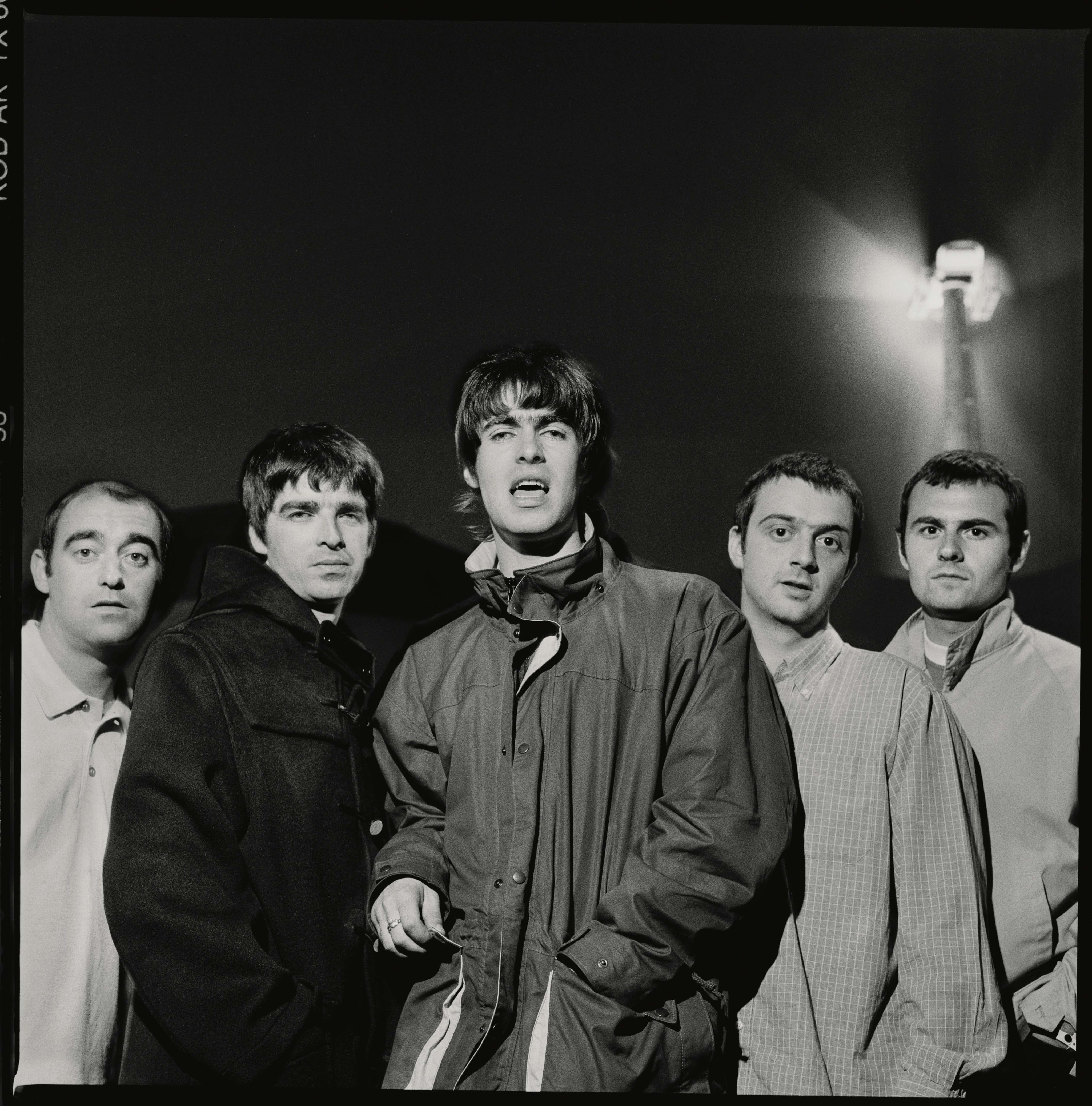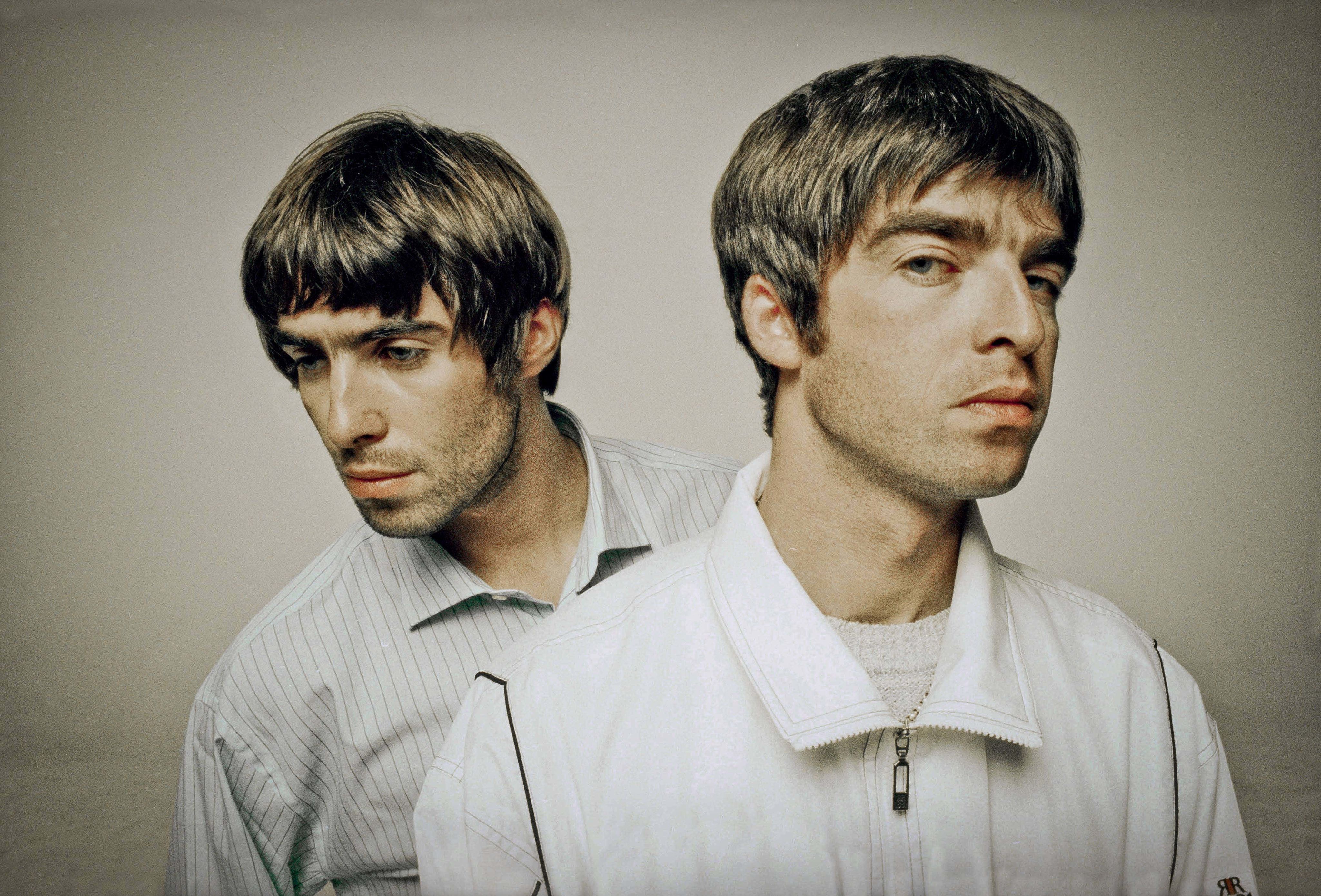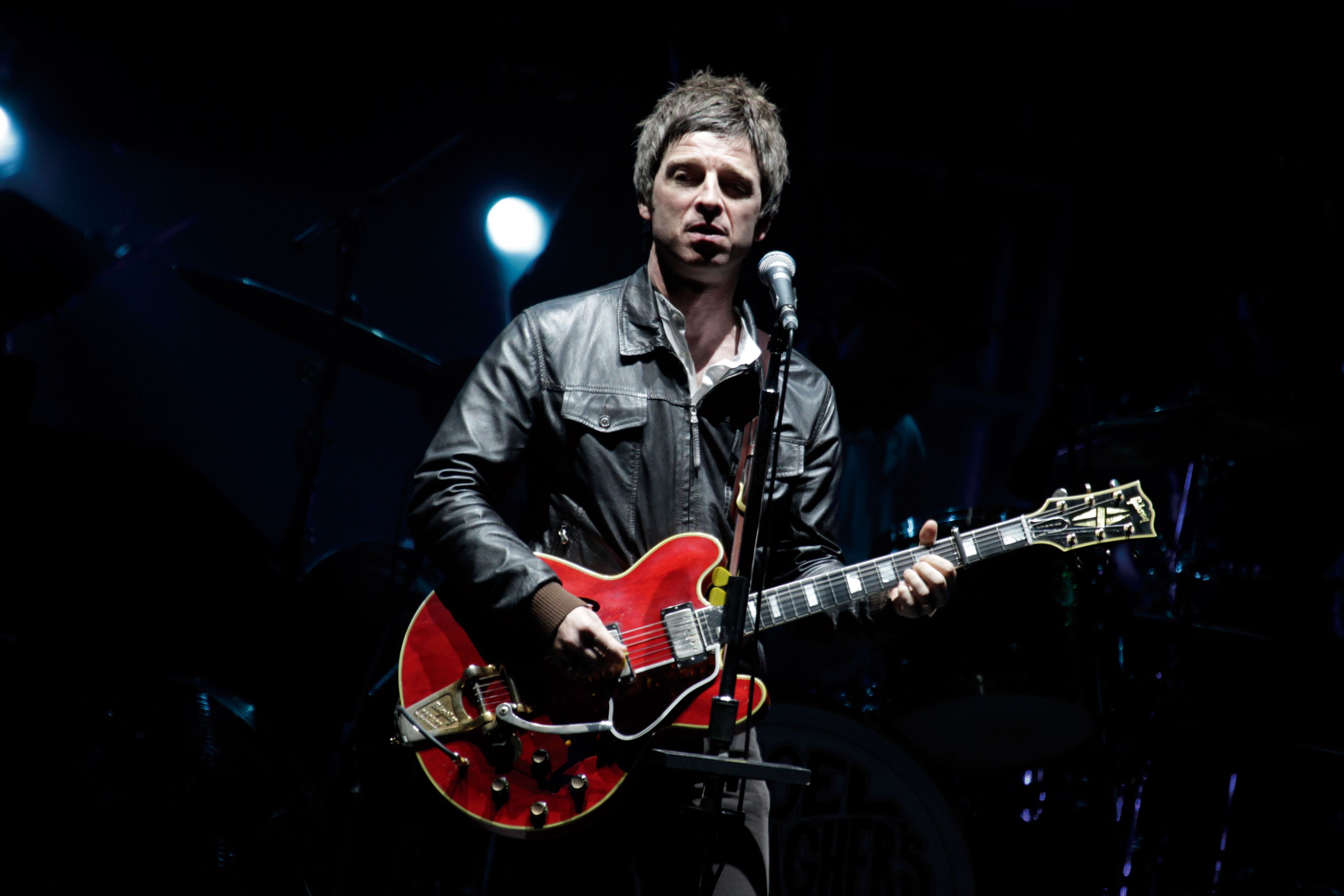Wonderwall
By Noel Gallagher

Like The Smiths before them, Oasis were an iconic Manchester band – but one with with deep Irish roots. Born to working class Irish parents, singer Liam Gallagher and his brother, guitarist and songwriter Noel, developed a teenage love of bands like The Sex Pistols, The Stone Roses and, especially, The Beatles. They formed Oasis with Noel as chief songwriter, and fuelled by the elder Gallagher’s melodic genius, the band’s raucous debut, Definitely Maybe (1994), was a multi-platinum effort that topped the UK charts. The follow-up (What’s The Story) Morning Glory? (1995) was even bigger: a cultural phenomenon, which ultimately shifted 22 million copies and became one of the best-selling albums of all time. Morning Glory’s success was significantly driven by the haunting acoustic ballad ‘Wonderwall’. Having charted at No.2 in the UK, the song ultimately sold over a million copies in Britain, where it was certified five-times platinum. It was no less beloved in Ireland, where it also charted at No.2 and became a mega-hit over the festive period in ‘95. A perennial buskers’ favourite, over 100 cover versions of ‘Wonderwall’ have been released.
The Story Behind The Song
Liam Gallagher’s band Rain had already played a number of gigs, to a largely indifferent world, when his big brother Noel decided to check out a bottom-of-the-bill show they played at Manchester’s Boardwalk venue, in August 1991. Seeing some potential in the outfit, the elder Gallagher offered his services as guitarist, but only on the strict understanding that he had to be installed as the sole songwriter with the band – now renamed Oasis.

Liam and Noel Gallagher of Oasis in 1995. Pic: Stefan de Batselier
Liam and Noel Gallagher of Oasis in 1995. Pic: Stefan de Batselier
That offer accepted, Noel chucked in his day job as a roadie with local band Inspiral Carpets. Relentless rehearsals and hard gigging saw the group sign to Alan McGee’s cult indie label Creation Records in 1993, subsequent to which Oasis embarked on one of the most remarkable odysseys in the annals of rock. Their debut album Definitely Maybe (1994) was a huge hit, ultimately going 7-times Platinum in the UK, on the back of a series of hit singles. The Irishness of the band’s main protagonists notwithstanding – they travelled to Ireland every year for their holidays and Noel has an Irish passport – they were seen as part of the phenomenon that was dubbed Britpop. With Oasis, Blur, Pulp and Suede to the fore, it was a sparkier alternative to the more doom-laden grunge music that was sweeping the USA.
The campaign for (What’s The Story) Morning Glory? Began with Oasis' first UK No.1, ‘Some Might Say’. What became known as the ‘Battle of Britpop’ kicked off in August ‘95, when the band's follow-up single ‘Roll With It’ squared off against ‘Country House’ – released by arch rivals Blur – in a chart battle that initiated a media frenzy.
Whilst Blur’s cheery pop effort ultimately beat the Oasis stomper to No.1 in both the UK and Ireland, Noel, Liam and the boys were playing the long game: they had kept the heavy artillery in reserve. Morning Glory was an immediate commercial success upon its release in early October, becoming the second-fastest selling album in UK history behind Michael Jackson’s Bad. However, it was the release of the extremely catchy and utterly memorable ‘Wonderwall’ as a single in the run-up to Christmas – at a time when singles were absolutely pivotal to the success of album campaigns – that marked the moment Oasis decisively went through the looking glass.
Beforehand, they had been an enormously popular indie act who had successfully ridden the Britpop wave. Afterwards, they were zeitgeist-defining heroes, who belonged in the same rarefied stratum of rock mega-stardom as The Rolling Stones, Led Zeppelin, U2 and, of course, The Beatles. Kicking off with a distinctive four-chord sequence that immediately entered rock lore, ‘Wonderwall’ was part of what became a staggering volume of classics created by Noel in the early ‘90s, when he burned with an all-consuming ambition to make Oasis one of the biggest bands in the world.
With a title derived from George Harrison’s Wonderwall Music and a lyric apparently inspired by Noel’s then girlfriend Meg Matthews – though he later commented, “That meaning of that song was taken away from me by the media… it’s a song about an imaginary friend who’s gonna come and save you from yourself” – ‘Wonderwall’ was recorded in a half-day during the Morning Glory sessions, at Rockfield studio in Monmouth, Wales.
Liam took lead vocals. Noel had given him the choice of singing either ‘Wonderwall’ or the album’s other monster hit-in-waiting, ‘Don’t Look Back In Anger’. The original plan was that the co-producer of the album, Owen Morris, would literally record Noel’s guitar part on the wall outside the studio. That notion was quickly abandoned, though a brief snippet – complete with birdsong – survives at the very end of the finished recording.
After the all-out sonic assault of Definitely Maybe, ‘Wonderwall’ showed a more a introspective side to Oasis, and the arrangement boasted impressive, bravura touches, – including some supremely atmospheric mellotron from Paul “Bonehead” Arthurs, as well as an inspired drum break from Alan White, who had replaced the departed original drummer Tony McCarroll behind the kit.
If the single format was key throughout the ‘90s, a song’s accompanying video could equally make or break a track. It was Oasis’ good fortune to strike up a productive relationship with English director Nigel Dick, a key figure in one of the most influential music video production companies of all time, the LA-based Propaganda Films, where his fellow founders included the soon-to-be-legendary film maker David Fincher, director of Seven, Fight Club and The Social Network.
Nigel Dick had an innate understanding of Oasis’ aesthetic grounding in ‘60s psychedelia, and from late ‘95 into mid-1996, he helmed a trio of promos – for ‘Wonderwall’, ‘Don’t Look Back In Anger’ and ‘Champagne Supernova’ – that more-or-less colonised the-then all-powerful MTV. By summer ‘96, Oasis were no longer a part of the culture: they were the culture. And ‘Wonderwall’ was their singalong anthem par excellence, a festival favourite as well as a go-to-song for buskers all over the world.
At one point, renewed interest in their earlier singles meant that Oasis songs took up nearly a quarter of the Irish Top 40. Having produced one generational anthem in ‘Wonderwall’, the band achieved the rare feat of immediately following it up with another, ‘Don’t Look Back In Anger’. At the end of a campaign that included landmark shows at Manchester’s Maine Road, Pairc Uí Chaoimh in Ireland’s southern capital, Cork, and Loch Lomond in Scotland, the high watermark of Oasis’ imperial phase, and of Britpop generally, was reached when the band headlined the legendary Knebworth Festival in England.
By this point, it was estimated that roughly a third of UK households owned an Oasis album. A few short years after the group had been signing on the dole, they performed to a quarter-of-a-million people on two consecutive evenings. There were two-and-a-half million ticket applications, meaning the band could have played 20 nights.
Over 100 cover versions of ‘Wonderwall’ have been released, including by star names like Paul Anka, Ryan Adams, Cat Power, LeAnne Rimes and (in an instrumental version) the Brad Mehldau Trio.
The accolades have continued to roll in for ‘Wonderwall’. It is a regular fixture on greatest songs of all time lists, with Rolling Stone ranking it at No.95, while NME placed it at No.36. In a poll conducted by Q, it finished second, behind another Oasis hit, ‘Live Forever’ – an apt signature tune for a band who really do belong among the immortals.

Noel Gallagher at the O2 – as Bono once sang: "All I want is a red guitar, three chords and the truth..."
Noel Gallagher at the O2 – as Bono once sang: "All I want is a red guitar, three chords and the truth..."
